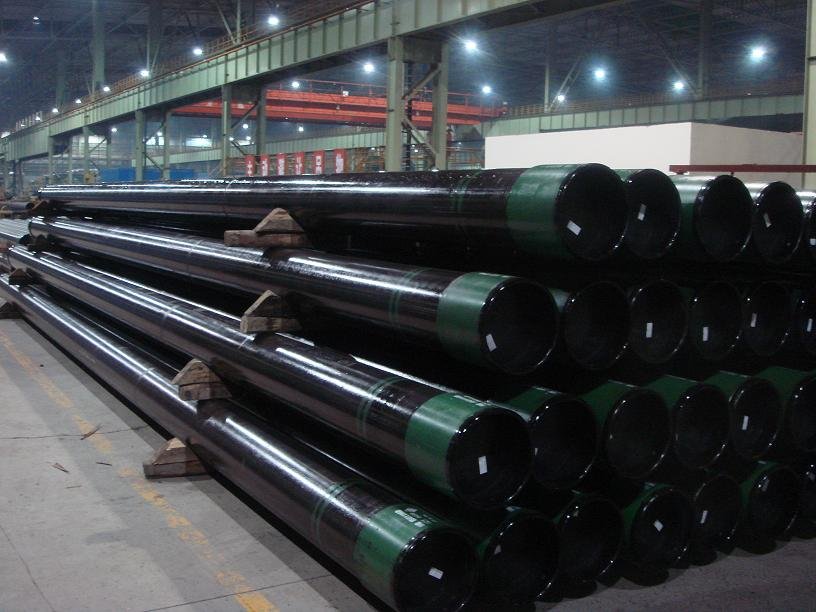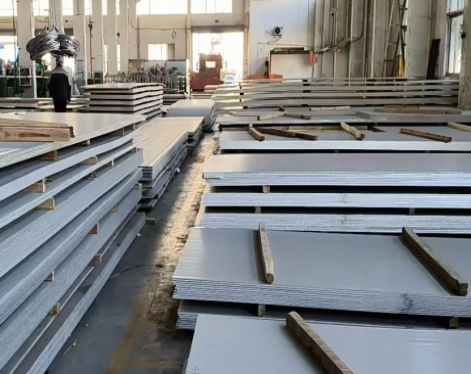1.What is octg steel casing pipe?
Octg steel casing pipe stands for "Oil Country Tubular Goods" and refers to a family of seamless rolled products consisting of drill pipe, casing, and tubing used in the drilling and extraction of oil and natural gas. Casing pipes are used to line the walls of a drilled well to prevent collapse and to separate different layers of soil or rock. These pipes are made of various grades of steel and are designed to withstand high pressures and corrosive environments encountered in oil and gas well operations.
2.What are the grades of cctg casing pipe?
The grades of OCTG casing pipe are typically designated by the American Petroleum Institute (API) and include various specifications based on the steel's strength, resistance to corrosion, and performance in specific environments.

Some common API grades for OCTG casing pipes include:
(1)API 5CT H40
A relatively low-strength grade suitable for shallow wells.
(2)API 5CT J55
A general-purpose grade with good tensile strength and low cost, suitable for most oil and gas wells.
(3)API 5CT K55
Similar to J55, but with slightly higher mechanical properties and heat treatment.
(4)API 5CT N80
A higher-grade casing pipe with improved strength and toughness, suitable for deeper wells and more demanding environments.
(5)API 5CT L80
A type of N80 with higher tensile strength and enhanced resistance to sulfide stress cracking.
These are just a few examples, and there are additional grades available to meet specific requirements for different drilling conditions and well depths.
3.What is octg casing size?
The sizes of OCTG casing are specified by their outer diameter and wall thickness. These sizes are typically standardized according to the American Petroleum Institute (API) standards. Common OCTG casing sizes range from 4 1/2 inches to 20 inches in outer diameter, with various wall thicknesses to suit different well depths and pressure requirements.
For example, a common OCTG casing size might be designated as "7" (7.00 inches outer diameter) with a particular wall thickness specified in terms of pounds per foot or in millimeters. The exact size and specifications of the casing pipe are determined based on the specific drilling conditions, well design, and regulatory requirements for the oil and gas operation.
4.How to choose octg casing sizes and grades?
When selecting OCTG casing sizes and grades for a particular oil and gas well, several factors should be considered to ensure the casing meets the specific operational and geological requirements.Here are some key considerations:
(1)Well depth and pressure
The depth of the well and the anticipated downhole pressure conditions will influence the required strength and thickness of the casing. Deeper wells and higher pressure formations typically require stronger and thicker casing.
(2)Geological conditions
Understanding the geological formations and potential challenges such as corrosive environments, high temperatures, or presence of H2S (sour gas) is crucial in selecting casing grades with appropriate corrosion resistance and mechanical properties.
(3)Regulatory standards
Compliance with industry regulations and standards, such as API, is essential. Casing sizes and grades must meet these standards to ensure safe and effective well operations.
(4)Well design and completion strategy
Considerations such as the need for cementing, wellbore stability, and the use of other downhole equipment will impact the choice of casing sizes and grades.
(5)Economic considerations
Balancing the cost of the casing materials with the performance requirements and longevity of the well is important in making an economically sound decision.
Ultimately, the selection of OCTG casing sizes and grades should be based on a comprehensive understanding of the specific well conditions, industry standards, and operational considerations to ensure the safety, integrity, and efficiency of the oil and gas well.
Octg steel casing pipe stands for "Oil Country Tubular Goods" and refers to a family of seamless rolled products consisting of drill pipe, casing, and tubing used in the drilling and extraction of oil and natural gas. Casing pipes are used to line the walls of a drilled well to prevent collapse and to separate different layers of soil or rock. These pipes are made of various grades of steel and are designed to withstand high pressures and corrosive environments encountered in oil and gas well operations.
2.What are the grades of cctg casing pipe?
The grades of OCTG casing pipe are typically designated by the American Petroleum Institute (API) and include various specifications based on the steel's strength, resistance to corrosion, and performance in specific environments.

Some common API grades for OCTG casing pipes include:
(1)API 5CT H40
A relatively low-strength grade suitable for shallow wells.
(2)API 5CT J55
A general-purpose grade with good tensile strength and low cost, suitable for most oil and gas wells.
(3)API 5CT K55
Similar to J55, but with slightly higher mechanical properties and heat treatment.
(4)API 5CT N80
A higher-grade casing pipe with improved strength and toughness, suitable for deeper wells and more demanding environments.
(5)API 5CT L80
A type of N80 with higher tensile strength and enhanced resistance to sulfide stress cracking.
These are just a few examples, and there are additional grades available to meet specific requirements for different drilling conditions and well depths.
3.What is octg casing size?
The sizes of OCTG casing are specified by their outer diameter and wall thickness. These sizes are typically standardized according to the American Petroleum Institute (API) standards. Common OCTG casing sizes range from 4 1/2 inches to 20 inches in outer diameter, with various wall thicknesses to suit different well depths and pressure requirements.
For example, a common OCTG casing size might be designated as "7" (7.00 inches outer diameter) with a particular wall thickness specified in terms of pounds per foot or in millimeters. The exact size and specifications of the casing pipe are determined based on the specific drilling conditions, well design, and regulatory requirements for the oil and gas operation.
4.How to choose octg casing sizes and grades?
When selecting OCTG casing sizes and grades for a particular oil and gas well, several factors should be considered to ensure the casing meets the specific operational and geological requirements.Here are some key considerations:
(1)Well depth and pressure
The depth of the well and the anticipated downhole pressure conditions will influence the required strength and thickness of the casing. Deeper wells and higher pressure formations typically require stronger and thicker casing.
(2)Geological conditions
Understanding the geological formations and potential challenges such as corrosive environments, high temperatures, or presence of H2S (sour gas) is crucial in selecting casing grades with appropriate corrosion resistance and mechanical properties.
(3)Regulatory standards
Compliance with industry regulations and standards, such as API, is essential. Casing sizes and grades must meet these standards to ensure safe and effective well operations.
(4)Well design and completion strategy
Considerations such as the need for cementing, wellbore stability, and the use of other downhole equipment will impact the choice of casing sizes and grades.
(5)Economic considerations
Balancing the cost of the casing materials with the performance requirements and longevity of the well is important in making an economically sound decision.
Ultimately, the selection of OCTG casing sizes and grades should be based on a comprehensive understanding of the specific well conditions, industry standards, and operational considerations to ensure the safety, integrity, and efficiency of the oil and gas well.









